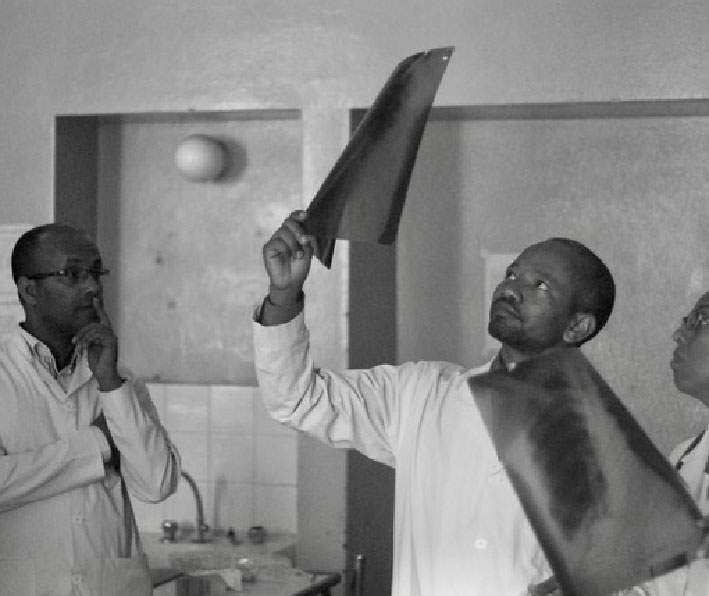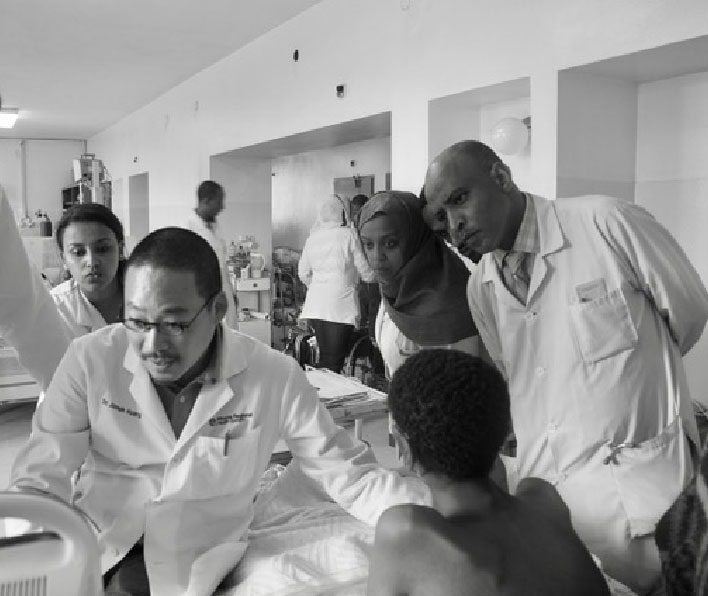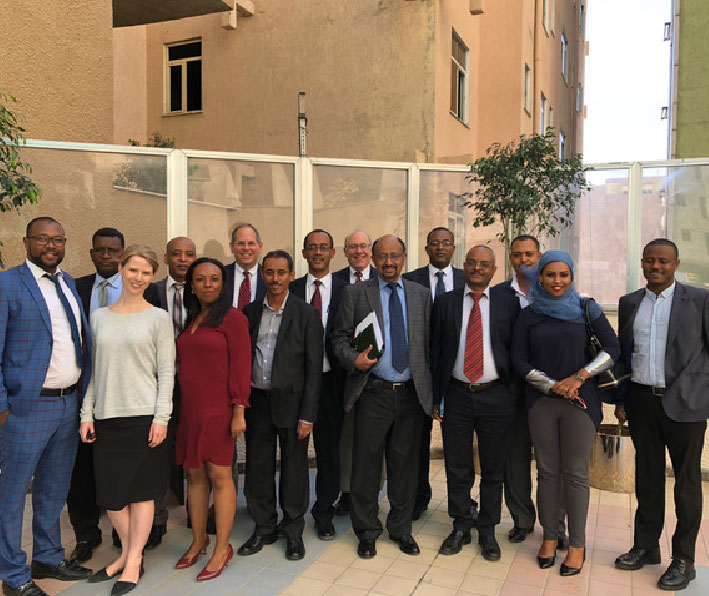
Dr. Dawit Kebede Huluku, a 2017 EATI graduate, leads pulmonary rounds.

Dr. Dawit Kebede Huluku, a 2017 EATI graduate, leads pulmonary rounds.
Before the East African Training Initiative (EATI) was founded in 2013, there was only one pulmonologist who practiced in Ethiopia, a nation of more than 100 million people.
Today, 18 pulmonary and critical care specialists have graduated from EATI, a fellowship training program in Ethiopia’s capital of Addis Ababa. Most of its graduates practice in Ethiopia, and it has seven fellows currently in training.
In 2020, CHEST helped EATI extend its reach through a community service grant. The funding was awarded to EATI Chief Financial Officer, Joseph Huang, MD, a CHEST member who’s also an intensivist at UPMC Altoona in Pennsylvania.
“Ethiopia is an under-resourced nation, both in terms of the country’s economy and the number of physicians for the population of the country,” Dr. Huang said. “Most physicians in Ethiopia are general practitioners. The impact of EATI is that we’ve increased the number of very well-trained specialists.”
Because of the grant support, EATI was able to purchase a video-assisted laryngoscope to facilitate safer and more efficient intubation in high-risk circumstances. EATI also used the funding to hire two additional pulmonary function test technicians at its chest clinic, which sees 500 patients monthly. The new technicians helped EATI meet its goal of increasing the clinic’s testing capacity from once a week to nearly three times a week.
The grant also played a key role in sustaining EATI amid immense challenges in 2020 as it faced the global pandemic, high inflation, and a brutal civil war in Ethiopia.
“There were many hurdles during the pandemic. If we didn’t have funding to make sure the program was sustainable moving forward, I think the interest from potential applicants would have waned. But the interest in the program increased, and [now] we have a record number of fellows who are training. The CHEST grant helped with that,” Dr. Huang said.

Dr. Huang teaches ultrasonography.

EATI graduates from 2015 through 2019.
EATI’s financial stability in 2020 was crucial because its graduates were clinical leaders in Ethiopia during the pandemic. The country’s COVID-19 treatment centers were almost entirely run by physicians who trained with EATI, and many graduates currently serve as consultants for the Ministry of Health of Ethiopia.
“Our graduates coordinate with [the Ministry of Health] on different policies, especially related to drug-resistant tuberculosis. They’re also training physicians in rural hospitals on basic skills in pulmonary and critical care medicine,” Dr. Huang said.
As he reflects on his work with EATI, Dr. Huang is struck by the sense of commonality and shared culture he has with his Ethiopian colleagues.
“[Being a part of EATI] reminds me that medicine is a universal language. I can walk into another country and seamlessly communicate [with clinicians] trained in the same tradition,” he said. “Ultimately, I’m reminded that we’re a part of a community of people who pursue this profession because we have shared aspirations [to help] people.”
Support initiatives like the East African Training Initiative by donating to CHEST. If you’re interested in applying for a grant, explore community service and research grant opportunities.